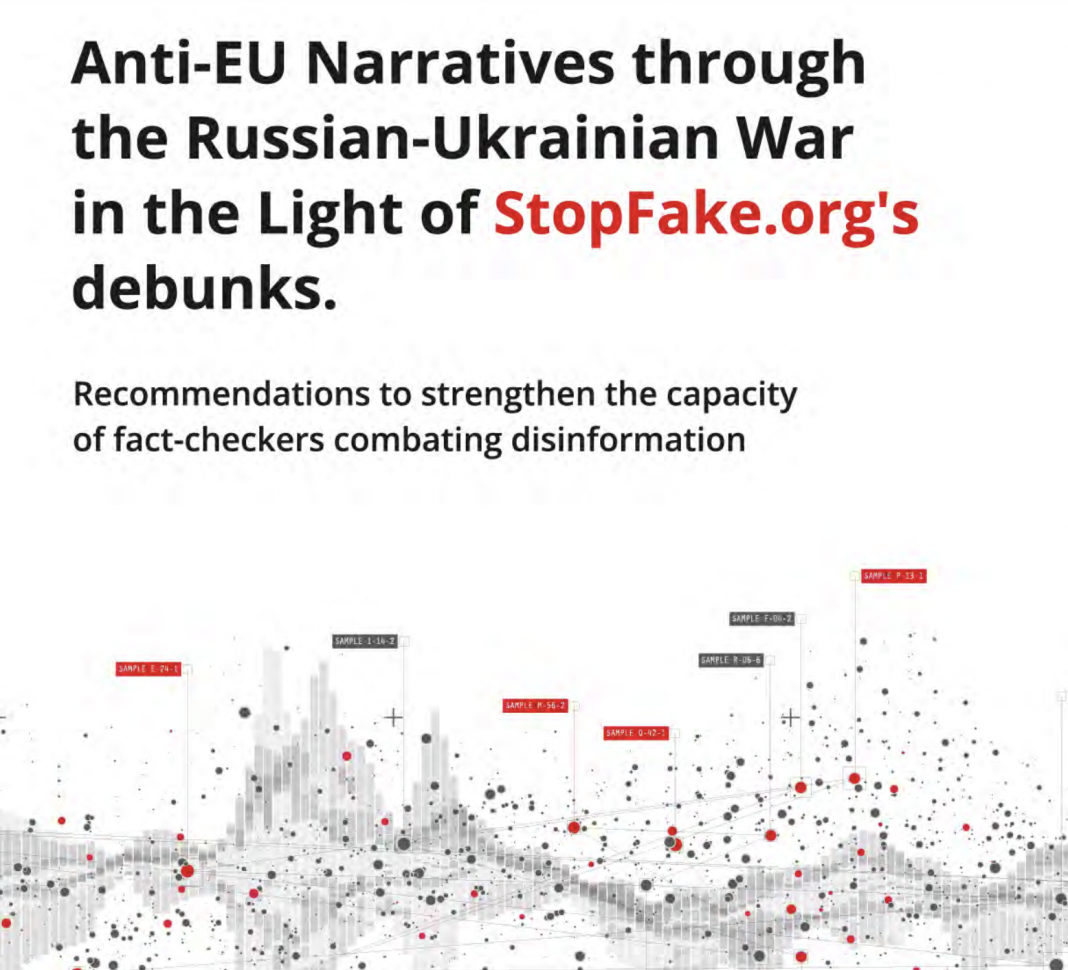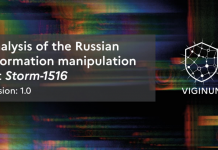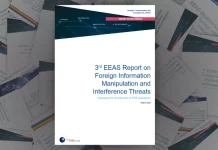Recommendations to strengthen the capacity of fact-checkers combating disinformation
Full text of the study here
The research and recommendations were developed by a working group of experts from the leading Ukrainian fact-checking organisation StopFake (run by the Ukrainian non-governmental organisation Media Reforms Centre) and the National University of Kyiv-Mohyla Academy (Mohyla School of Journalism) as part of the project “Building the Resilience of Ukrainian Fact-checkers in Combating Disinformation about the EU”.
This project is implemented in partnership with Madrid University Carlos III – Medialab research group and with the financial support of the European Media and Information Fund, sponsored by the European University Institute and the Calouste Gulbenkian Foundation, as well as by Google.
Disinformation as a tool of warfare was actively used in the Soviet Union and then by the Russian Federation. The conduct of Russia’s hybrid war in Ukraine since 2014 has been accompanied by various information operations whose aim is to introduce harmful malign ideas and views into collective and individual consciousness; to disorient and misinform the public; to undermine certain beliefs and stability; to instill fear about one’s neighbor through the portrayal of an enemy(Horban, 2015). Russia constantly disseminated a series of disinformation narratives to distort Ukraine’s image in the eyes of both Western allies and Ukrainians themselves. Russia actively employs reflexive control to influence the opinions of the majority and the decisions made by stakeholders (Fedchenko, 2016; Media Aijr & Vailliant, 2018). Reflexive control compels a stronger opponent to voluntarily choose a particular action to benefit Russia and shapes the necessary perception of the situation around the opponent (Makukhin, 2018; Snegovaya, 2015). To this end, Russia creates the necessary images, visualizations, fake statements and fake studies, including fake and manipulative news, all of which work in concert and in one direction – to make the adversary think and make decisions in a way that benefits Russia.
The Russian-Ukrainian War that started in 2014 set a new stage for complex hybrid warfare where not only new types of traditional weapons are being used, but all types of information weapons are tested and deployed as well. A cornerstone and the main topic targeted in this information war is the relationship between Ukraine and the EU, which Russia is trying to manipulate and ruin in different ways.
The study of disinformation narratives against European countries and the European Union in the context of the Russian-Ukrainian war has significant importance. The desire of Ukraine to move towards Europe, to aspire to a better standard of living, was the catalyst for the Euromaidan Revolution, to which Russia responded with war. Today, during the full-scale war, the European Union stands as one of Ukraine’s largest and most important allies. Russia’s information aggression towards such allies is in line with Russia’s information strategy.
The selection of fact-checking materials for this research, focuses on narratives and their evolution during the full-scale war, but not only. The analysis reveals the reason fake news is used (the intent of the disinformation) and that debunking the most widely spread, emblematic, or the most dangerously influential material shows potentially future hot spots with which policy makers will have to contend.
Thus, within this framework, the following research questions were posed:
What disinformation narratives about the EU and European countries were propagated from 2014 to 2023, and did this landscape change with Russia’s full-scale invasion of Ukraine?
Which European countries are most frequently featured in disinformation narratives, and in what context?
Can a database of the fact-checking project serve as a basis for research and analysis of information operations?





